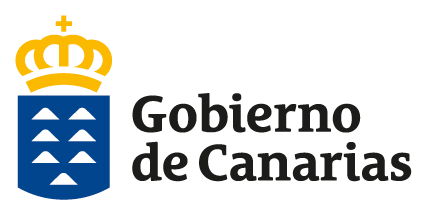Análisis y reflexiones sobre la nueva ley de elecciones al Parlamento de Canarias y su proyección en las elecciones autonómicas de 2023
DOI:
https://doi.org/10.36151/RCAP.2023.1Palabras clave:
Ley 1/2022 de Elecciones al Parlamento de Canarias, el sistema electoral canario, el régimen electoral canario, LOREG, elecciones autonómicas, digitalización y campaña electoral, el voto de los canarios residentes ausentesResumen
El pasado 24 de mayo de 2022 entró en vigor la nueva ley de elecciones al Parlamento de Canarias. En este artículo se aborda, desde una perspectiva técnico-jurídico, el análisis de las principales novedades que incorpora y que afectan, básicamente, al nuevo sistema electoral canario. No obstante, y dado que una ley electoral no afecta exclusivamente al sistema electoral, se analizan aquellos aspectos del régimen electoral que quizá hubiera sido conveniente incorporar, al redundar en una mejora de la calidad del sistema democrático canario ( tipo de listas, obligación de realizar debates electorales, composición paritaria de las listas) y aquellas otras que necesariamente deberán ser adoptadas como consecuencia de las más actuales reformas de la LOREG y sobre las que tiene competencia legislador autonómico canario (aspectos procedimentales, de campaña institucional o de administración electoral del voto de los canarios en el exterior -art. 75 de la LOREG-, entre otras)
Descargas
Referencias
Álvarez Gil, R. (2015). El principio constitucional de proporcionalidad en el sistema electoral autonómico canario. Análisis de su experiencia histórica en el autogobierno, Cizur Menor: Thomson Reuters Aranzadi, Pamplona.
Arenas Ramiro, M. (2019): «Partidos políticos, opiniones políticas e internet: La lesión del a la protección de datos personales», Teoría y Realidad Constitucional, núm. 45 341-372.
Cuesta López, Victor:
-(2020): «Reforma electoral en Canarias: Génesis, alcance, implementación e incidencia práctica», TRC, núm. 45, 2020, pp. 429-449
- (2016): «Los sistemas electorales archipelágicos: reflexiones en torno a la reforma del sistema electoral canario desde el derecho comparado», en Pérez Sánchez, G. y Mújica Moreno, V. (coords.), Textos para la reforma electoral de Canarias, Universidad de Las Palmas de Gran Canaria, Las Palmas de Gran Canaria.
Fernández -Esquer, Carlos (2022): Sistemas electorales regionales en Estados multinivel: los casos de Alemania, Bélgica, Italia y España, CEPC, Madrid.
Fernández Esquer, Carlos. y Montero Gibert, José Ramón (2016). El sistema electoral canario: representación desproporcional y desigualdad del voto. En G. Pérez Sánchez y V. Mújica Moreno (coords.). Textos para la reforma electoral de Canarias. Universidad de Las Palmas de Gran Canaria, Las Palmas de Gran Canaria, pp. 27-74.
Fernández -Esquer, Carlos y Sierra-Rodríguez Javier (2019): «El voto preferencial en las Comunidades Autónomas: propuestas y condicionantes jurídicos», REAF-JSG 29, p. 51-100, DOI: 10.2436/20.8080.01.34.
Gálvez Muñoz, Luis A. (2020): «Estatutos de autonomía y sistemas electorales autonómicos», Teoría y Realidad Constitucional, núm. 45, 325-349.
García Mahamut, Rosario:
- (2018) «La reforma de los sistemas electorales autonómicos tras las elecciones de 24 de mayo: vectores políticos y jurídicos», Teoría y Realidad Constitucional, 41, pp.185-212.
- (2020) Disposición transitoria primera del Estatuto de Autonomía de Canarias, en (Dirs. A. Domínguez Vila y J.R. Rodríguez Drincourt Álvarez) Comentarios al Estatuto de Autonomía de Canarias, BOE y Parlamento de Canarias, Madrid, pp. 1207-12011.
-(2012) «La reforma electoral (LO 2/2011) y el voto de los españoles en el exterior (CERA). La inefectividad del derecho de sufragio de los españoles en el exterior. Una necesaria revisión», Teoría y Realidad Constitucional, núm. 30, 2012.
Garriga Domínguez, A. (2020): «Reflexiones sobre el marketing político y el fenómeno de la desinformación en el contexto electoral», Anuario de Filosofía del Derecho, XXXVI, pp. 251-287
López Aguilar, Juan Fernando:
- (2020) Artículo 39 del Estatuto de Autonomía de Canarias, en (Dirs. A. Domínguez Vila y J.R. Rodríguez Drincourt Álvarez) Comentarios al Estatuto de Autonomía de Canarias, BOE y Parlamento de Canarias, Madrid, pp. 253- 259.
- (2020) Disposición transitoria primera del Estatuto de Autonomía de Canarias, en (Dirs. A. Domínguez Vila y J.R. Rodríguez Drincourt Álvarez) Comentarios al Estatuto de Autonomía de Canarias, BOE y Parlamento de Canarias, Madrid, pp. 1201-1206.
- (2016) «El Sistema electoral autonómico canario: una revisión necesaria, imperiosa e inaplazable», en Pérez Sánchez, G. - Mujica Moreno, V. (coords.), Textos para la reforma electoral de Canarias, Las Palmas de Gran Canaria: Universidad de Las Palmas de Gran Canaria.
- (1997) «Los problemas de constitucionalidad del sistema electoral canario (La insoportable permanencia de una Disposición Transitoria)», Revista Española de Derecho Constitucional, núm. 51, pp. 95-139.
López Aguilar, Juan Fernando y García Mahamut, Rosario (2019): «El nuevo Estatuto de Autonomía de Canarias: tercera generación. Hecho diferencial y nuevo sistema electoral», Revista Española de Derecho Constitucional, 115, pp. 13- 45.
Publicado
Número
Sección
Licencia
Derechos de autor 2023 Revista Canaria de Administración Pública

Esta obra está bajo una licencia internacional Creative Commons Atribución-NoComercial-SinDerivadas 4.0.







